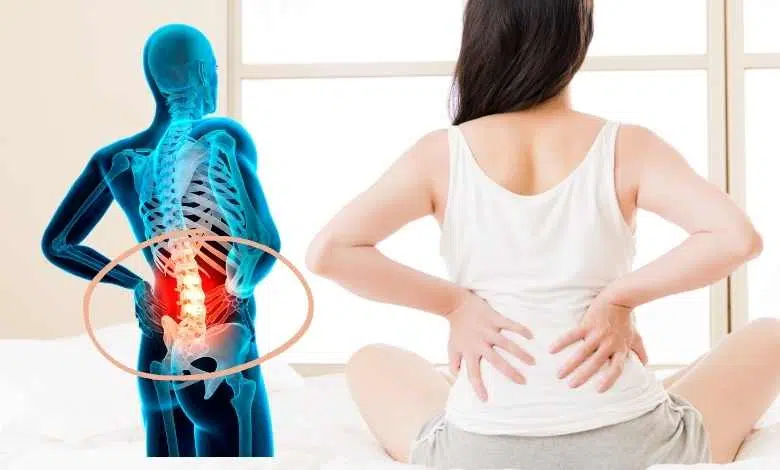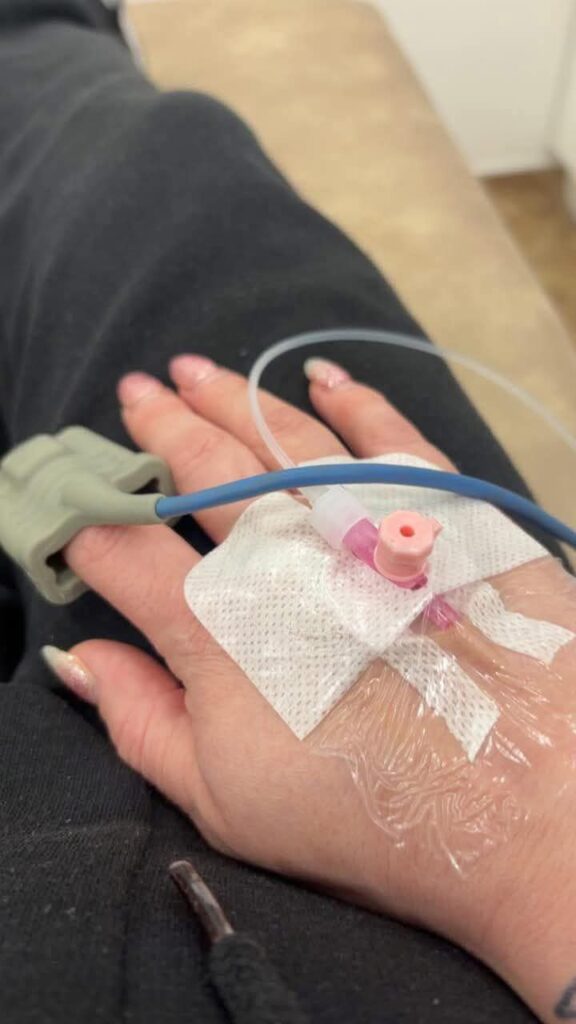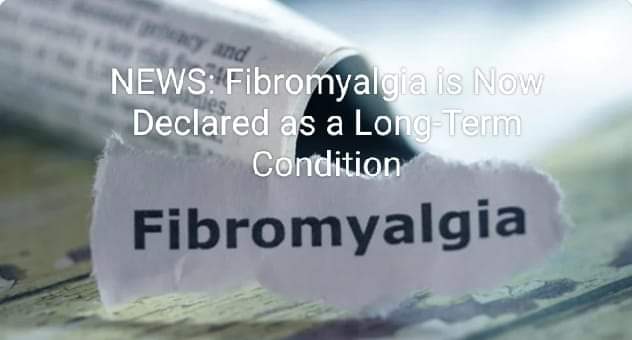Over 5 million people affects by fibromyalgia in the U.S also the numbers are keep on increasing. There are numerous uncomfortable signs of Fibromyalgia. It is recognized as an unseen illness as people cannot see the way where people hurt from the disease. Usually, Fibromyalgia is a quite severe situation that the victims experience and its signs should be identified. For support and Discussion join the group “Living with Fibromyalgia and Chronic Illness”
We have compiled the list of few of the worst symptoms and also added their coping methods. After that we have compiled the list of all of the fibromyalgia symptoms and categorized them.
Here is the Overall List of Symptoms of Fibromyalgia
GENERAL
- 1. Activity level decreased to less than 50% of pre-illness activity level
- 2. Cold hands and feet (extremities)
- 3. Cough
- 4. Craving carbohydrates
- 5. Delayed reaction to physical activity or stressful events
- 6. Dryness of eyes and/or mouth
- 7. Edema
- 8. Family member(s) with Fibromyalgia
- 9. Fatigue, made worse by physical exertion or stress
- 10. Feeling cold often
- 11. Feeling hot often
- 12. Frequent sighing
- 13. Heart palpitations
- 14. Hoarseness
- 15. Hypoglycemia (blood sugar falls or low)
- 16. Increased thirst
- 17. Low blood pressure (below 110/70)
- 18. Low body temperature (below 97.6)
- 19. Low-grade fevers
- 20. Night sweats
- 21. Noisy joints – with or without pain
- 22. Poor circulation in hands/feet
- 23. Profuse sweating
- 24. Recurrent flu-like illness
- 25. Shortness of breath with little or no exertion
- 26. Severe nasal allergies (new or worsening allergies)
- 27. Sore throat
- 28. Subjective swelling of extremities – (feels swollen Bu can’t find anything)
- 29. Sweats
- 30. Symptoms worsened by air travel
- 31. Symptoms worsened by stress
- 32. Symptoms worsened by temperature changes
- 33. Tender or swollen lymph nodes, especially in neck and underarms
- 34. Tremor or trembling
- 35. Unexplained weight gain or loss
PAIN
- 36. Abdominal wall pain
- 37. Bad hip pain
- 38. Burning Nerve Pain
- 39. Chest pain
- 40. Collarbone pain
- 41. Diffuse swelling
- 42. Elbow pain
- 43. Exacerbated Plantar arch or heel pain
- 44. “Growing” pains that don’t go away once you are done growing
- 45. Headache – tension or migraine
- 46. Inflamed Rib Cartilage
- 47. Joint pain
- 48. Lumpy, tender breasts
- 49. Morning stiffness
- 50. Muscle pain
- 51. Muscle spasms
- 52. Muscle twitching
- 53. Muscle weakness
- 54. Pain that ranges from moderate to severe
- 55. Pain that moves around the body
- 56. Paralysis or severe weakness of an arm or leg
- 57. Restless Leg Syndrome
- 58. Rib Pain
- 59. Scalp Pain (like hair being pulled out)
- 60. Sciatica-like pain
- 61. Tender points or trigger points
- 62. TMJ syndrome
- 63. “Voodoo Doll” Poking Sensation in random places
NEUROLOGICAL
- 64. Blackouts
- 65. Brain fog
- 66. Carpal Tunnel
- 67. Feeling spaced out
- 68. Hallucinating smells
- 69. Inability to think clearly
- 70. Light headedness
- 71. Noise intolerance
- 72. Numbness or tingling sensations
- 73. Photophobia (sensitivity to light)
- 74. Seizures
- 75. Seizure-like episodes
- 76. Sensation that you might faint
- 77. Syncope (fainting)
- 78. Tinnitus (ringing in one or both ears)
- 79. Vertigo or dizziness
EQUILIBRIUM/PERCEPTION
- 80. Bumping into things
- 81. Clumsy Walking
- 82. Difficulty balancing
- 83. Difficulty judging distances (when driving, etc.)
- 84. Directional disorientation
- 85. Dropping things frequently
- 86. Feeling spatially disoriented
- 87. Frequent tripping or stumbling
- 88. Not seeing what you’re looking at
- 89. Poor balance and coordination
- 90. Staggering gait
SLEEP
- 91. Alertness/energy best late at night
- 92. Altered sleep/wake schedule
- 93. Awakening frequently
- 94. Difficulty falling asleep
- 95. Difficulty staying asleep
- 96. Excessive sleeping
- 97. Extreme alertness or energy levels late at night
- 98. Falling asleep at random and sometimes dangerous moments
- 99. Fatigue
- 100. Light or broken sleep pattern
- 101. Muscle spasms/twitches at night
- 102. Narcolepsy
- 103. Sleep disturbances
- 104. Sleep starts or falling sensations
- 105. Teeth grinding
- 106. Tossing and turning
- 107. Un-refreshing or non-restorative sleep
- 108. Vivid or disturbing dreams/nightmares
EYES/VISION
- 109. Blind spots in vision
- 110. Eye pain
- 111. Difficulty switching focus from one thing to another
- 112. Frequent changes in ability to see well
- 113. Night driving difficulty
- 114. Occasional Blurry vision
- 115. Poor night vision
- 116. Rapidly worsening vision
- 117. Vision changes
COGNITIVE
- 118. Becoming lost in familiar locations when driving
- 119. Confusion
- 120. Difficulty expressing ideas in words
- 121. Difficulty following conversation (especially if background noise present)
- 122. Difficulty following directions while driving
- 123. Difficulty following oral instructions
- 124. Difficulty following written instructions
- 125. Difficulty making decisions
- 126. Difficulty moving your mouth to speak
- 127. Difficulty paying attention
- 128. Difficulty putting ideas together to form a complete picture
- 129. Difficulty putting tasks or things in proper sequence
- 130. Difficulty recognizing faces
- 131. Difficulty speaking known words
- 132. Difficulty remembering names of objects
- 133. Difficulty remembering names of people
- 134. Difficulty understanding what you read
- 135. Difficulty with long-term memory
- 136. Difficulty with simple calculations
- 137. Difficulty with short-term memory
- 138. Easily distracted during a task
- 139. Dyslexia-type symptoms occasionally
- 140. Feeling too disoriented to drive
- 141. Forgetting how to do routine things
- 142. Impaired ability to concentrate
- 143. Inability to recognize familiar surroundings
- 144. Losing track in the middle of a task (remembering what to do next)
- 145. Losing your train of thought in the middle of a sentence
- 146. Loss of ability to distinguish some colors
- 147. Poor judgment
- 148. Short term memory impairment
- 149. Slowed speech
- 150. Staring into space trying to think
- 151. Stuttering; stammering
- 152. Switching left and right
- 153. Transposition (reversal) of numbers, words and/or letters when you speak
- 154. Transposition (reversal) of numbers, words and/or letters when you write
- 155. Trouble concentrating
- 156. Using the wrong word
- 157. Word-finding difficulty
EMOTIONAL
- 158. Abrupt and/or unpredictable mood swings
- 159. Anger outbursts
- 160. Anxiety or fear when there is no obvious cause
- 161. Attacks of uncontrollable rage
- 162. Decreased appetite
- 163. Depressed mood
- 164. Feeling helpless and/or hopeless
- 165. Fear of someone knocking on the door
- 166. Fear of telephone ringing
- 167. Feeling worthless
- 168. Frequent crying
- 169. Heightened awareness – of symptoms
- 170. Inability to enjoy previously enjoyed activities
- 171. Irrational fears
- 172. Irritability
- 173. Overreaction
- 174. Panic attacks
- 175. Personality changes –usually a worsening of pervious condition
- 176. Phobias
- 177. Suicide attempts
- 178. Suicidal thoughts
- 179. Tendency to cry easily
GASTROINTESTINAL
- 180. Abdominal cramps
- 181. Bloating
- 182. Decreased appetite
- 183. Food cravings
- 184. Frequent constipation
- 185. Frequent diarrhea
- 186. Gerd-like Symptoms
- 187. Heartburn
- 188. Increased appetite
- 189. Intestinal gas
- 190. Irritable bladder
- 191. Irritable bowel syndrome
- 192. Nausea
- 193. Regurgitation
- 194. Stomachache
- 195. Vomiting
- 196. Weight gain
- 197. Weight loss
UROGENITAL
- 198. Decreased libido (sex drive)
- 199. Endometriosis
- 200. Frequent urination
- 201. Impotence
- 202. Menstrual problems
- 203. Painful urination or bladder pain
- 204. Pelvic pain
- 205. Prostate pain
- 206. Worsening of (or severe) premenstrual syndrome (PMS)
SENSITIVITIES
- 207. Alcohol intolerance
- 208. Allodynia (hypersensitive to touch)
- 209. Alteration of taste, smell, and/or hearing
- 210. Sensitivity to chemicals in cleaning products, perfumes, etc.
- 211. Sensitivities to foods
- 212. Sensitivity to light
- 213. Sensitivity to mold
- 214. Sensitivity to noise
- 215. Sensitivity to odors
- 216. Sensitivity to yeast (getting yeast infections frequently on skin, etc.)
- 217. Sensory overload
- 218. Sensitivity to pressure & humidity changes
- 219. Sensitivity to extreme temperature changes
- 220. Vulvodynia
SKIN
- 221. Able to “write” on skin with finger
- 222. Bruising easily
- 223. Bumps and lumps
- 224. Eczema or psoriasis
- 225. Hot/dry skin
- 226. Ingrown hairs
- 227. Itchy/Irritable skin
- 228. Mottled skin
- 229. Rashes or sores
- 230. Scarring easily
- 231. Sensitivity to the sun
- 232. Skin suddenly turns bright red
Cardiovascular (Heart)
- 233. “Click-murmur” sounds through stethoscope
- 234. Fluttery heartbeat
- 235. Heart palpitations
- 236. Irregular heartbeat
- 237. Loud pulse in ear
- 238. Pain that mimics heart attack
- 239. Rapid heartbeat
HAIR/NAILS
- 240. Dull, listless hair
- 241. Heavy and splitting cuticles
- 242. Irritated nail beds
- 243. Nails that curve under
- 244. Pronounced nail ridges
- 245. Temporary hair loss
OTHER
- 246. Canker sores
- 247. Dental problems
- 248. Disk Degeneration
- 249. Hemorrhoids
- 250. Nose bleeds
- 251. Periodontal (gum) disease
- Reference<https://www.fibromyalgiaresources.com/200-symptoms-of-fibromyalgia/#google_vignette



